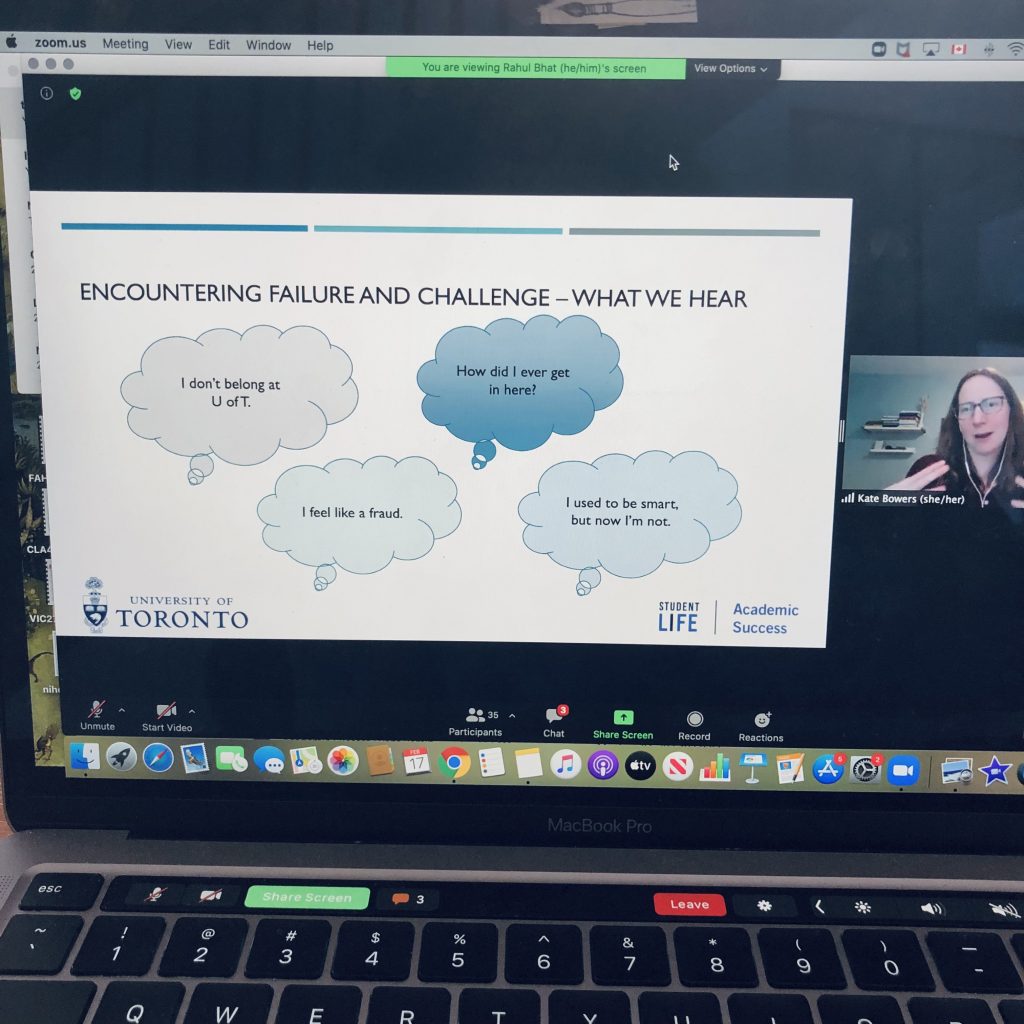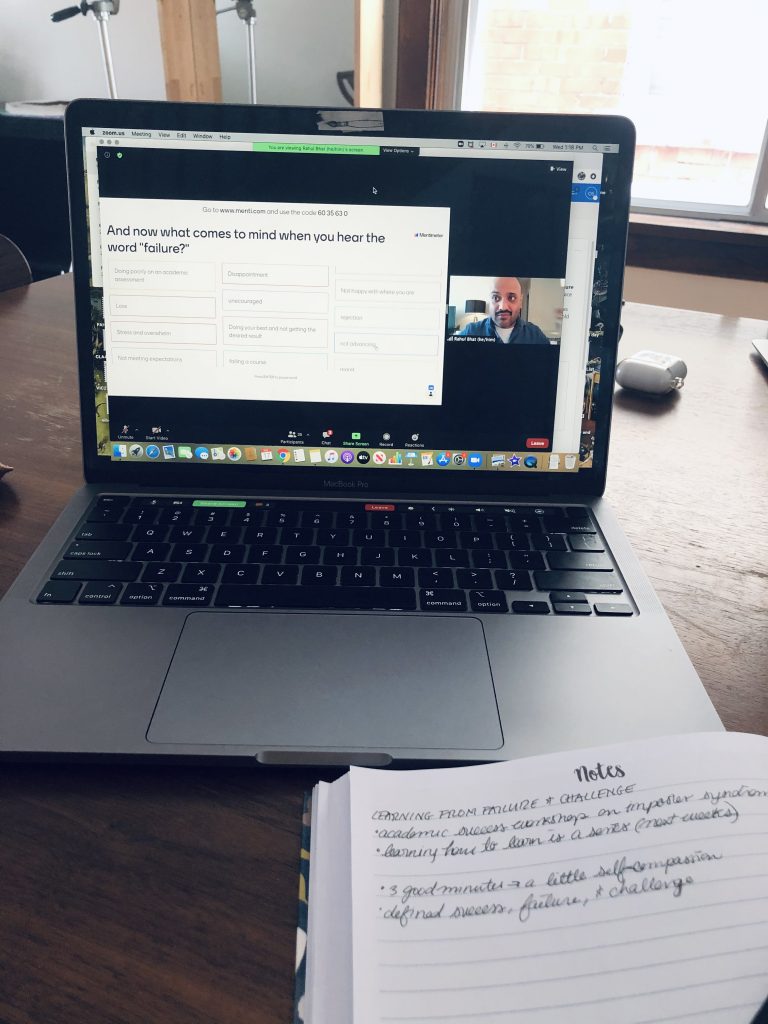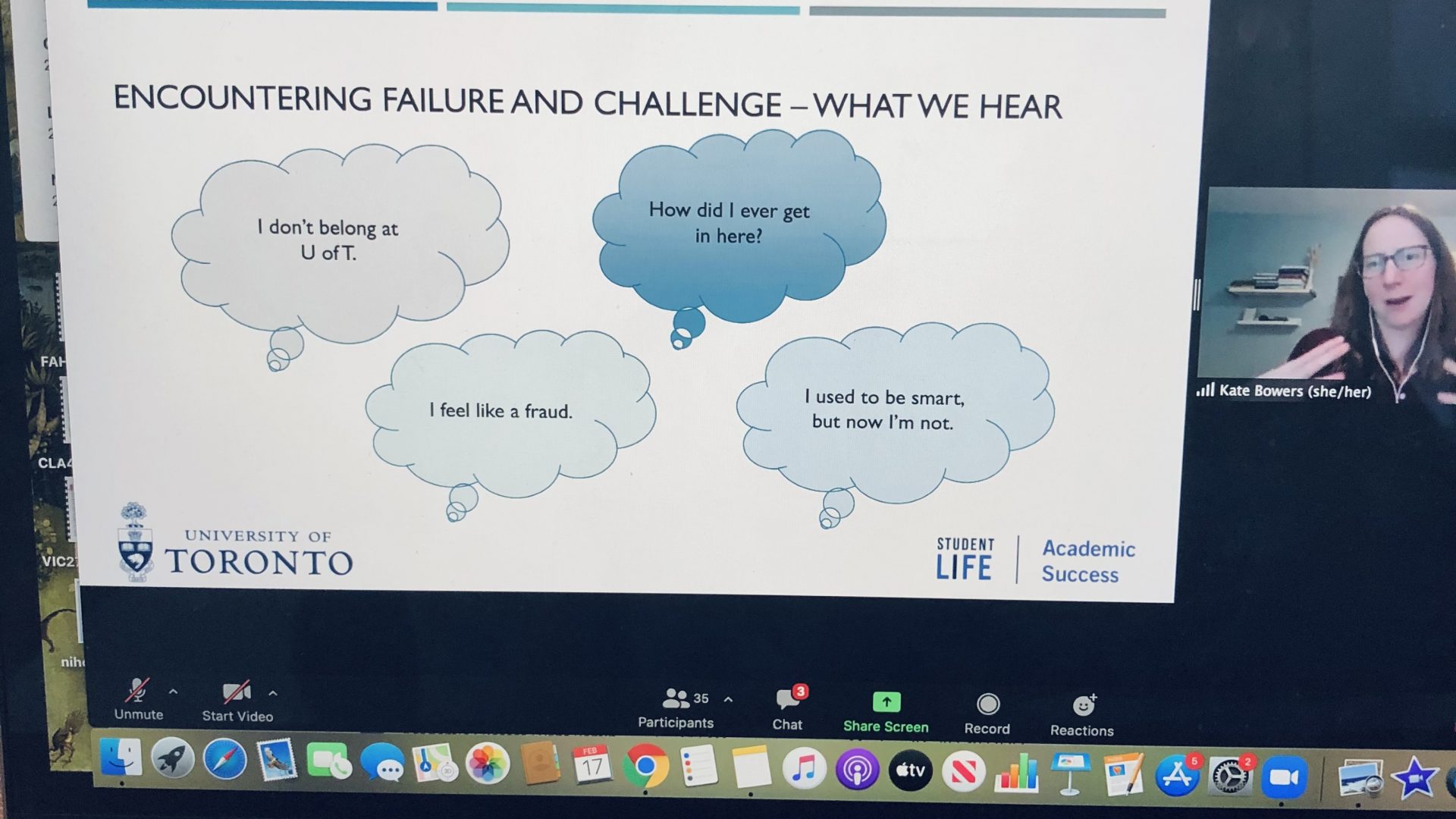Over Reading Week I attended an Academic Success workshop on Imposter Syndrome titled “Learning from Failure and Challenge”. This is one of a group of workshops in U of T Student Life’s “Learning How to Learn" series.
These Academic Success workshops are open to all students and are meant to help with the struggles that U of T students experience over the school year. These workshops address issues such as stress, procrastination, failure, and habits for staying healthy and happy.

Each workshop begins with a One Good Minute exercise which is meant to help us think compassionately about ourselves. The session I attended took three minutes for this exercise and it felt like a little meditation.
In the session on imposter syndrome and learning from failure the hosts identified what causes imposter syndrome and how it can be dealt with.
The notes I took:
Defining Imposter Syndrome/Phenomenon
- Feelings that arise as a reaction to a (new) learning environment
- Common in academia
- Sense of not belonging and difficulty internalizing accomplishments
- Inability to share fears with others
- Negative self talk = stops ability to learn successfully
- It is a short term experience
To learn more about how students experience imposter syndrome check out this Varsity article on it.
(Some) Strategies to Deal with Imposter Syndrome

Growth Mindset
- I can learn anything [rather than: I’m either good or bad at it.]
- When I fail, I learn [rather than: When I fail, I’m no good.]
- If you succeed, I’m inspired [rather than: If you succeed, I feel threatened.]
- Always add the word ‘yet’: I’m not comfortable speaking in class, yet.
Reflective Exercise
- Ask yourself: will this matter in 5 days? 5 months? 5 years?
I have always found that Academic Success workshops help me get back on track with my studies; they help me see the bigger picture. Much of the time I tell myself I am already aware of the strategies provided in the session, but the truth is I won’t incorporate those strategies into my life unless I am continuously reminded of them. Which is why attending Academic Success workshops help with maintaining a healthy mindset toward school.
If you are interested in attending Academic Success workshops check out the Student Life website and sign up on CLNx.

These are very useful resources for addressing ‘head trash’.
I also remind myself of my daughter’s advice of avoiding social media which tends to reinforce negative thinking.
Such a wonderful post, Olive!